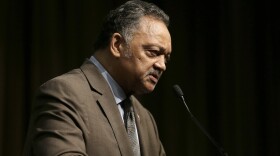Updated at 9:15 p.m.
Just days after Gov. Roy Cooper vetoed new abortion restrictions, the N.C. Senate and House have voted along party lines to override that veto.
Despite pressure from Cooper and abortion-rights supporters to change their minds, all Republicans voted in favor of the override. That includes GOP lawmakers who had previously made statements opposing new restrictions. One of them, Rep. Ted Davis, R-New Hanover, had missed a previous vote on the bill and told a CBS 17 reporter earlier Tuesday that he remained undecided.
Senate Bill 20 bans most abortions after 12 weeks of pregnancy — down from 20 weeks under previous state law — with exceptions for cases of rape, fetal abnormalities, and the life of the mother.
While abortions before 12 weeks would remain legal, patients would face additional hurdles. The bill requires in-person doctor visits for patients seeking medication abortions and mandates that a doctor must be present when abortion medication is administered. It adds new informed consent requirements, and it increases licensing requirements and regulatory fees for abortion providers.
Gov. Cooper Statement on Republican vote to override SB20 veto: pic.twitter.com/Kh06weg4zQ
— Governor Roy Cooper (@NC_Governor) May 17, 2023
Cooper reacted to the vote and said in a statement that "several Republican lawmakers broke their promises to protect women’s reproductive freedom."
Rep. Tricia Cotham, R-Mecklenburg, whose recent party switch gave Republicans the necessary three-fifths majority for an override in both chambers, said she believes "this bill strikes a reasonable balance on the abortion issue and represents a middle ground that anyone not holding one of the two extremist positions can support."
Cotham campaigned on the issue of protecting abortion rights in 2022.
Democrats say the regulations in the bill would put abortions off-limits for some women, who might have trouble finding time and transportation to go to multiple doctor’s appointments.
Republican senators spent much of Tuesday’s debate rebutting statements made by opponents, including Cooper, who has appeared on multiple national TV shows this week.
“This is not extreme, and this is most definitely not an abortion ban,” said Sen. Vickie Sawyer, R-Iredell. “Women facing this decision will now be told of all their options from abortion to neonatal and perinatal care. This is a true informed consent for the mother so she can fully understand the prognosis and make a difficult yet loving family decision.”
Sen. Natasha Marcus, D-Mecklenburg, said Republicans are getting touchy about the backlash to the bill.
“I can tell that you're feeling the heat of the public outrage about this bill,” she said. “I assume that's why you're moving it so quickly — literally the fastest I have ever seen a bill move in the General Assembly.”
Marcus argued that the bill “will force OBGYNs to leave our state because of the criminalization of doctors, the incentive to sue the doctor, the vague exceptions to the ban that they can't understand and they can't apply, and the unnecessary barriers to access so that even healthy pregnant patients who plan to carry their babies to term will have trouble finding O.B. care in North Carolina.”
Republicans, meanwhile, suggested that Democrats’ opposition was motivated by campaign donations from abortion-rights groups.
“Why would they take this vote?” said Sen. Amy Galey, R-Alamance. “Because of their blind obedience to Planned Parenthood, the abortion industry and the far left, to keep their political caucus full of Planned Parenthood campaign contributions, and to stoke fear and anger about this common sense bill.”
The House's evening session on the override mostly featured comments from Democrats, while few Republicans spoke during the debate.
Most of the new restrictions would take effect July 1. Senate leader Phil Berger told reporters after the vote that he doesn’t expect any further abortion legislation to come up this session.
WUNC's Laura Pellicer contributed to this reporting.








